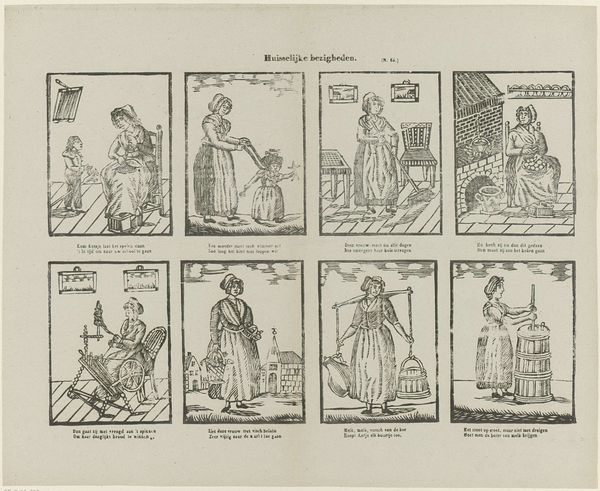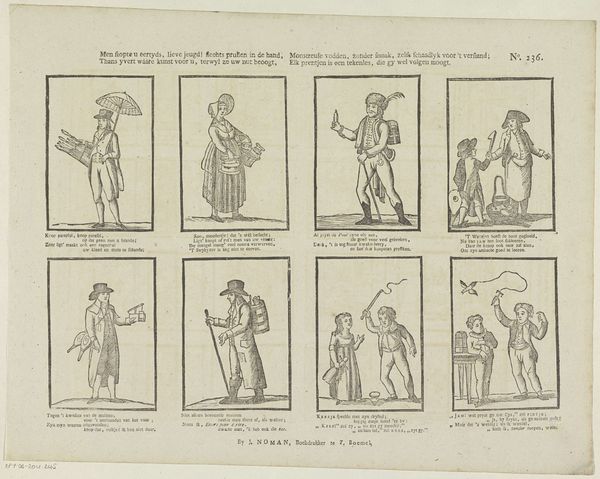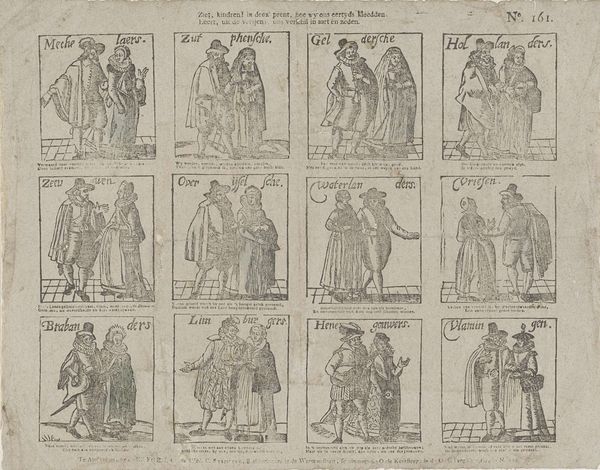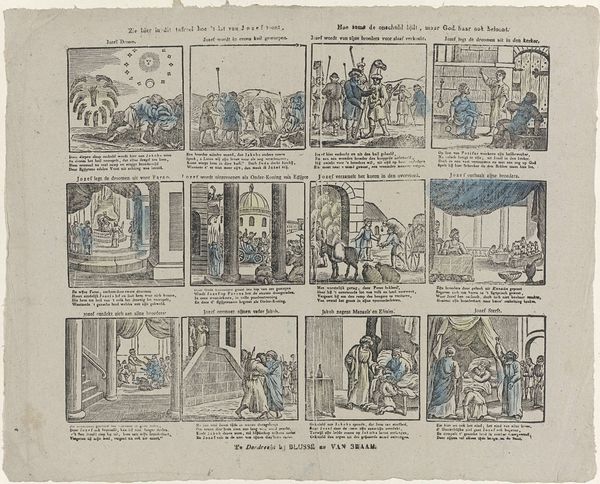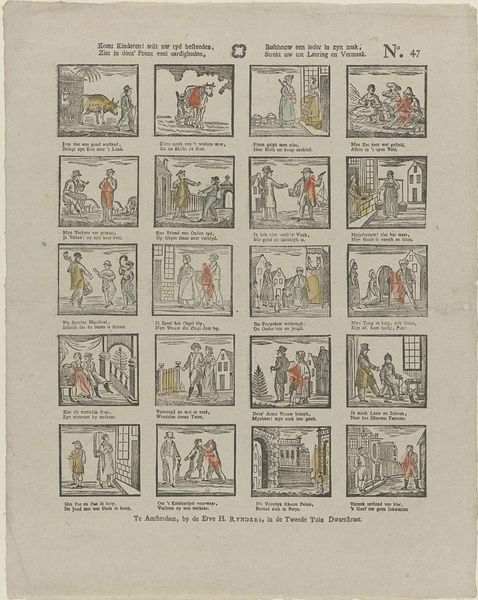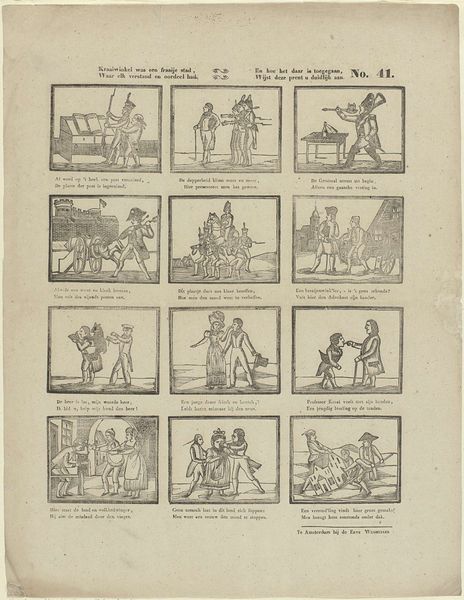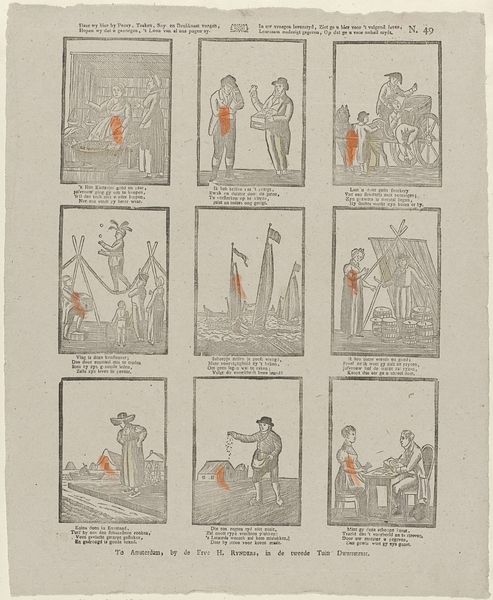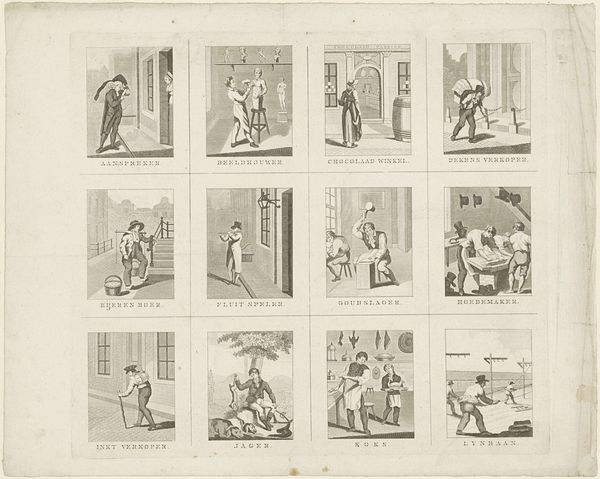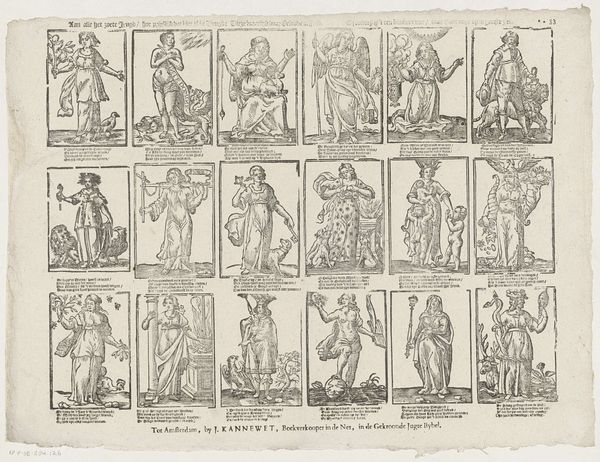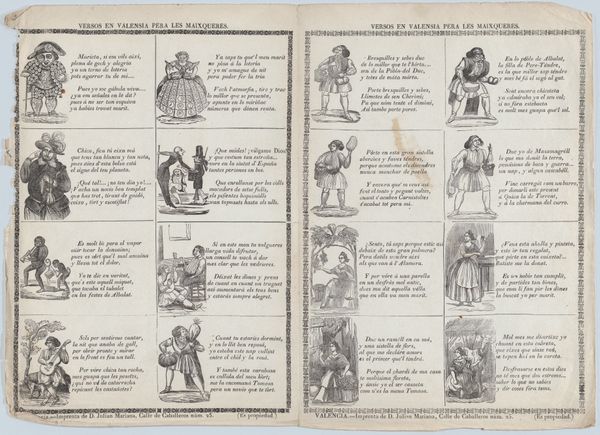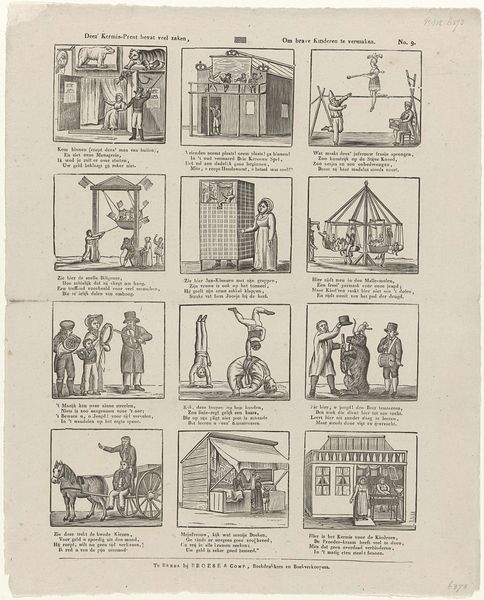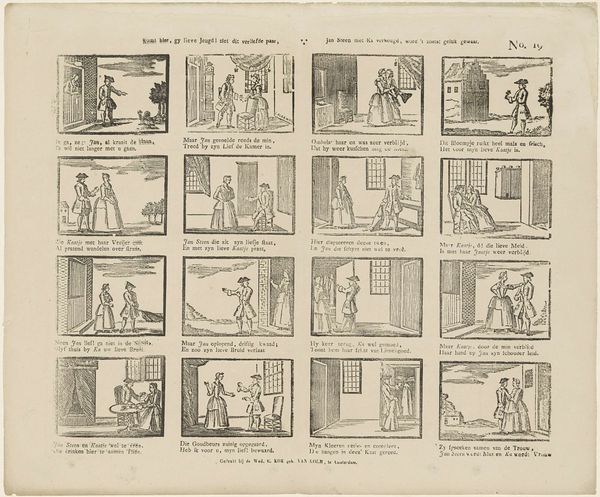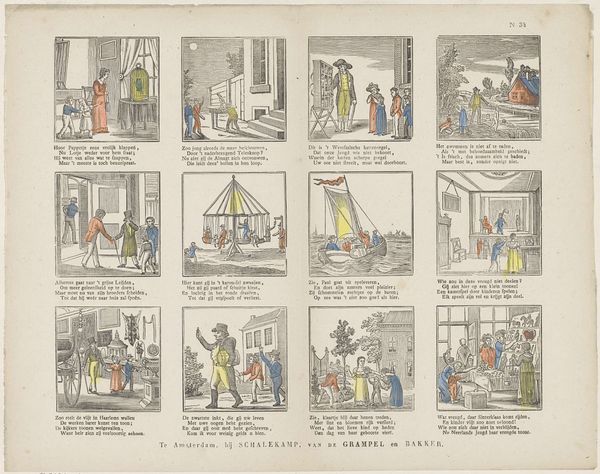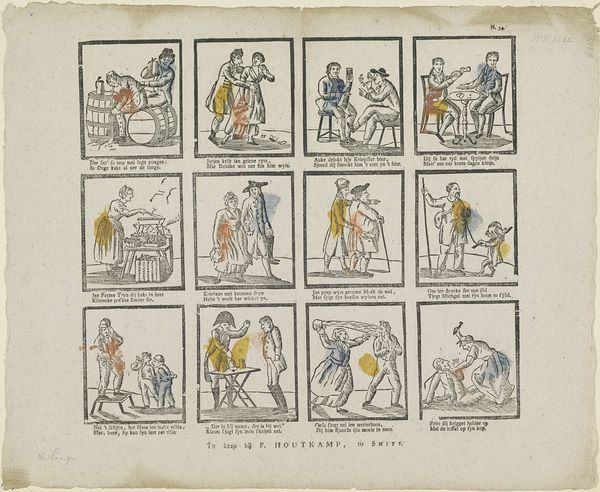
Wanneer gij graag vermaken ziet, / Let dan op 't geen men u hier biedt. / Hier leert gij hoe volwassen menschen, / Niet min dan gij, genoegens wenschen 1822 - 1849
0:00
0:00
schalekampvandegrampel
Rijksmuseum
graphic-art, print, engraving
#
portrait
#
graphic-art
#
narrative-art
# print
#
old engraving style
#
figuration
#
romanticism
#
line
#
genre-painting
#
engraving
Dimensions: height 330 mm, width 420 mm
Copyright: Rijks Museum: Open Domain
Editor: So, this print is titled "Wanneer gij graag vermaken ziet," which translates to "When you like to see entertainment." It's by Schalekamp & Van de Grampel, dating from 1822 to 1849. It feels a bit like a page from a storybook, with all these little scenes etched in fine lines. What catches your eye when you look at it? Curator: You know, it’s interesting, isn't it? Each scene is its own little universe of playful folly and courtship, little vignettes, full of… I almost want to say "anticipation." I imagine this hanging in a parlour, perhaps meant to inspire witty conversation, each panel prompting speculation on love, loss, and the general ridiculousness of people. Does the text underneath provide hints? What stories might each scene contain? Editor: The text seems to offer little rhymes for each picture, perhaps a commentary on the scene. I suppose each tiny tableau captures a specific, amusing social dynamic. So, were these kinds of prints common at the time? Curator: Absolutely! Imagine, if you will, that people living in the Netherlands during this period sought lighthearted stories about everyday people engaged in the rituals of entertainment and social bonding, a moral message to be gleamed through social observation of class and norms, a study of the ordinary presented as a spectacle... That's Romanticism, isn’t it? Look at the detail of those outfits! It all offers clues into a world where social amusement provided a reflection of the viewer's world. How are these little interactions applicable today? Editor: I guess it’s fascinating to consider how much has changed – and how much remains the same about our desire for connection. Curator: Precisely. And maybe that's the true pleasure, recognizing ourselves – flaws and all – in these little dramas from centuries ago.
Comments
No comments
Be the first to comment and join the conversation on the ultimate creative platform.
